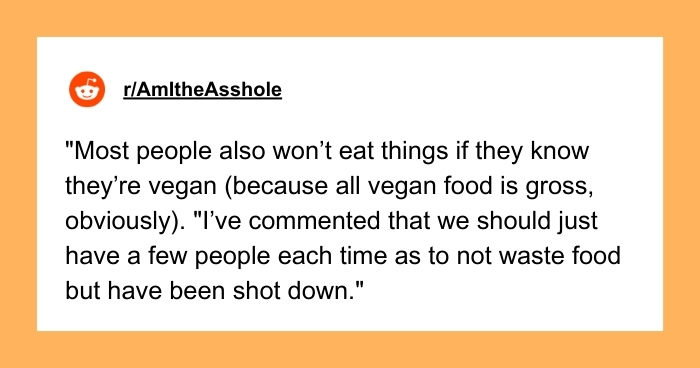Vegan employee refuses to bring food to ‘themed’ staff meeting, ‘I’m weird with germs.’ AITA?
The OP (original poster) had a dilemma about monthly staff meetings at their workplace where everyone brough food that matched a specific theme. This month is crockpot recipes, and it poses challenges for the OP (who works in a workplace where they are the only vegan person.) Clearly, they do not have a crockpot and are curbed to bring something to be likely ignored, again, because, based on previous years’ free and whole potluck events, show they have learned their cookery the hard (and sad) way. To further complicate matters, the event does not take place during lunch but rather in the late afternoon where most employees are not starving. The OP raised issues of food waste and other alternatives, like less people per meeting, but the suggestions have been shot down. In fact, they aren’t even going to eat any of the food themselves so they’re not sure whether they would actually be the jerk if they just skipped the food contribution altogether.
Read for more info Reddit

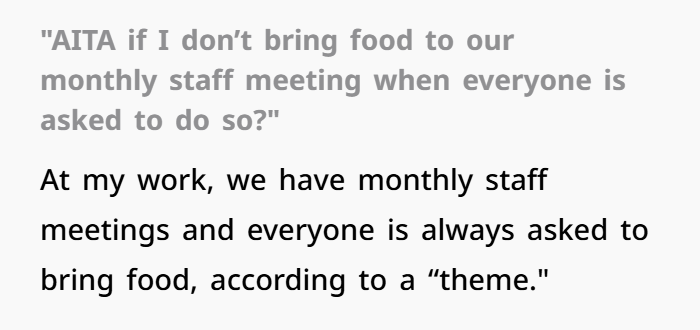
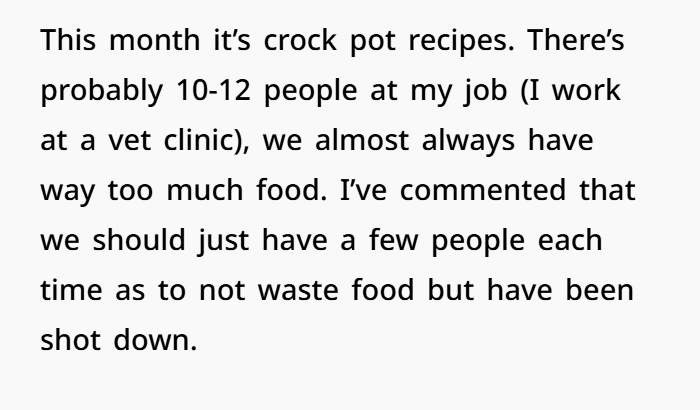
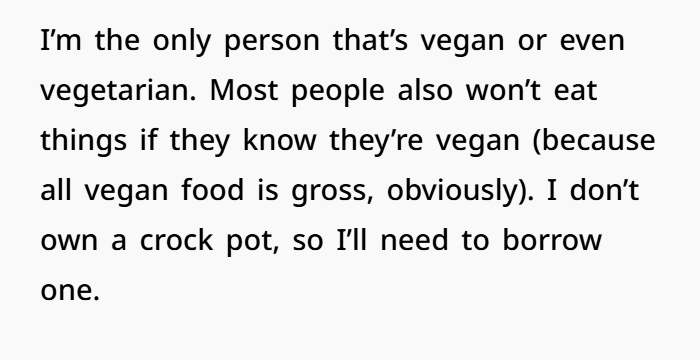
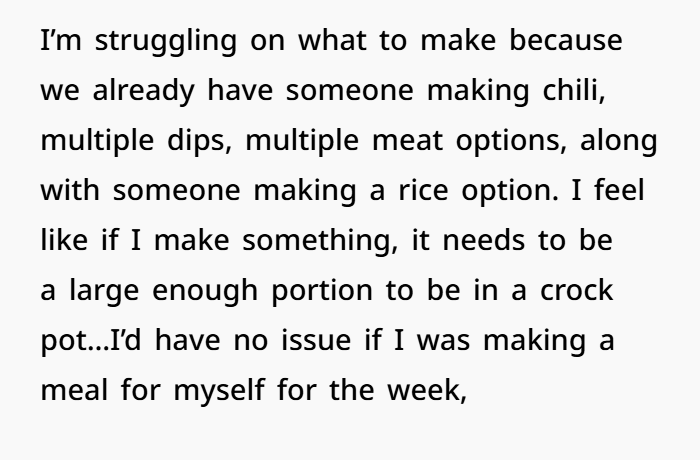

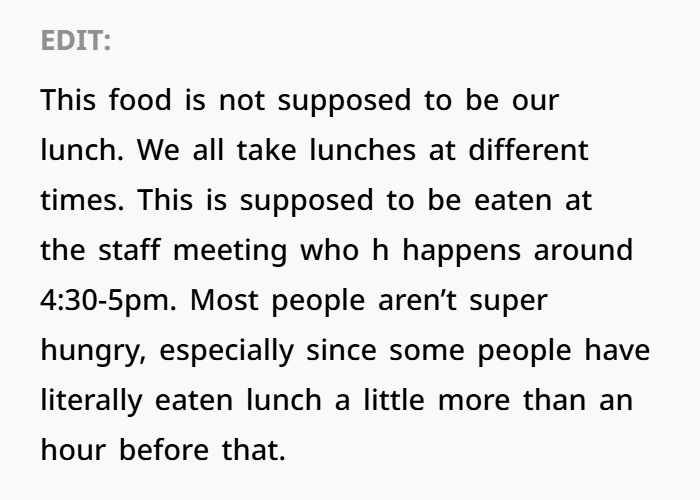
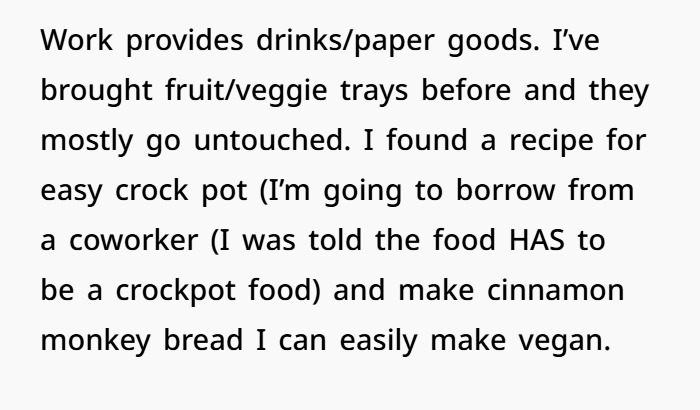
This scenario highlights several nuanced issues, including workplace culture, dietary inclusivity, and the ethics of food waste. Below is a breakdown of the situation and potential approaches, supported by research and related insights:
- Workplace Expectations and Social Norms
Shared workplace events (potlucks etc.) give rise to camaraderie and team spirit. Research shows that when groups of individuals eat together, they can facilitate informal interaction, which can increase the quality of work relationships. But when the expectations are inflexible — for instance, the need to bring a specific kind of dish — it can inadvertently marginalize or exclude some employees. So, for instance, OP has food restrictions themselves and also does not have a crockpot so they are being asked to lug ingredients for two food items that they cannot eat along with no access to any equipment to prepare it in which makes it an unfair ask which breeds resentment/disinterest. - Dietary Inclusivity
Inclusion is not just about gender, race, or ability, it also means catering for dietary choices and dietary needs at the workplace. According to a survey by Statista in 2021, 6% of Americans are vegans, while more and more people know about the plant-based diet. Imposing themes that are predominantly meat-centered or a particular cooking method can alienate individuals with different diets. The OP had brought fruit and veggie trays prior, which went largely untouched– a sign of either lack of respect for, or lack of curiosity in, vegan options, which just further demotivates their willingness to get involved. - Food Waste Concerns
OP examines the waste of food and that goes broader with stats on potlucks and shared meals. Studies have shown that the reality of large gatherings is that 25–40% of the food cooked for them invariably goes to waste. This could be alleviated with OP’s suggestion of rotating contributors; I’d argue that it fits within an ecological model of sustainability as well. Sadly, they had their idea tossed aside, showing a closed mindedness to practical adaptation. - Navigating the Situation
Borrowing a crockpot to make vegan cinnamon monkey bread that same day seems a fair compromise from OP. This is on theme yet approachable, sweet enough that colleagues might enjoy it. On the other hand, if OP really does then feel uncomfortable or underappreciated in the dynamic, it may be appropriate to go a bit more direct. This can be suggesting different types of team building or a more inclusive approach to potluck preparation.
What people said about situation;


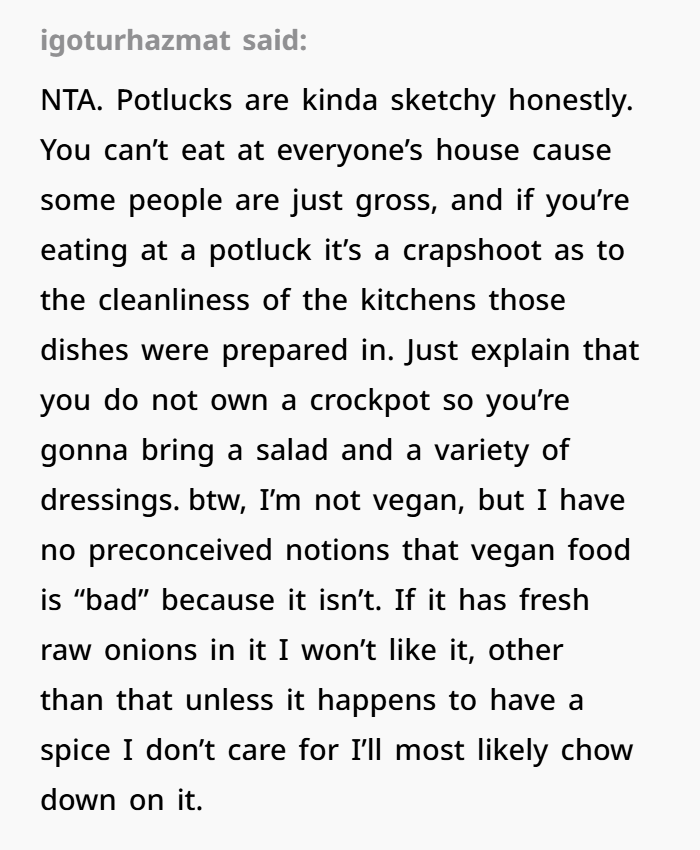


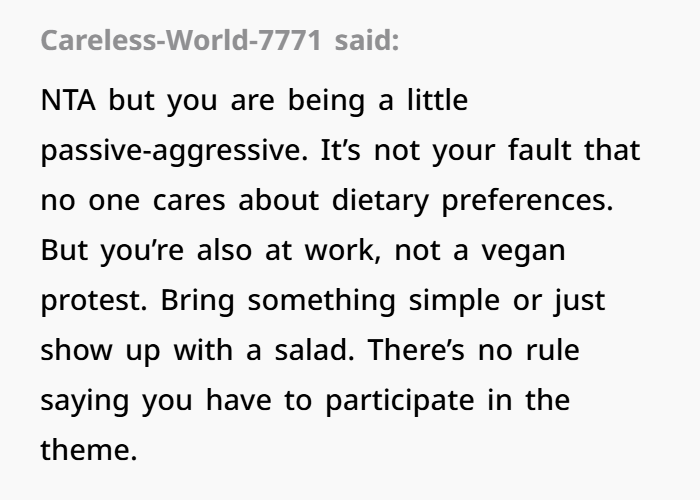
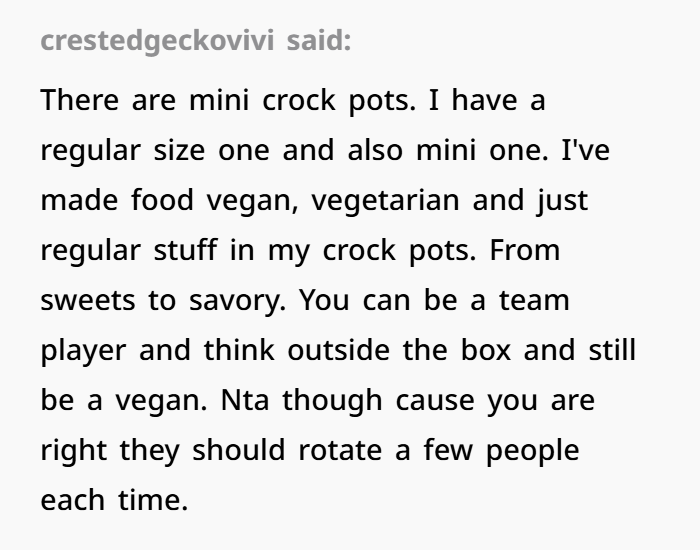
Op is in the wrong context it works this way, although, contributing is in nature genuine work but the rigid expectations and exclusionary environment has put an unhealthy expectation over op. Not making the contribution, especially if they’re not going to eat, does not make them an AH. The proactive measures that they take to do this respectfully (substituting dishes, offering to lend cookware or cook ware, finding a dish that is able to be made vegan closest to the rest of the meal, etc) is an indication of their willingness to compromise. It is on the workplace to create a culture with less boundaries that provides similar opportunities for all employees equally.

